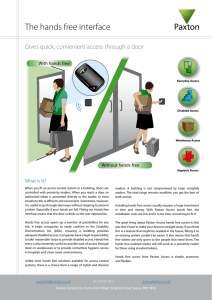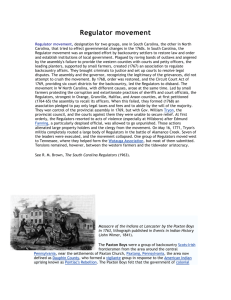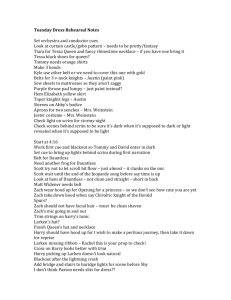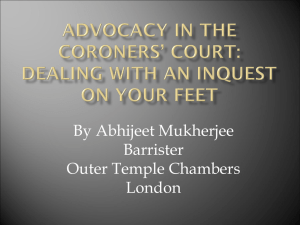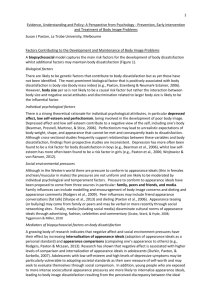CORONERS ACT, 1975 AS AMENDED
advertisement
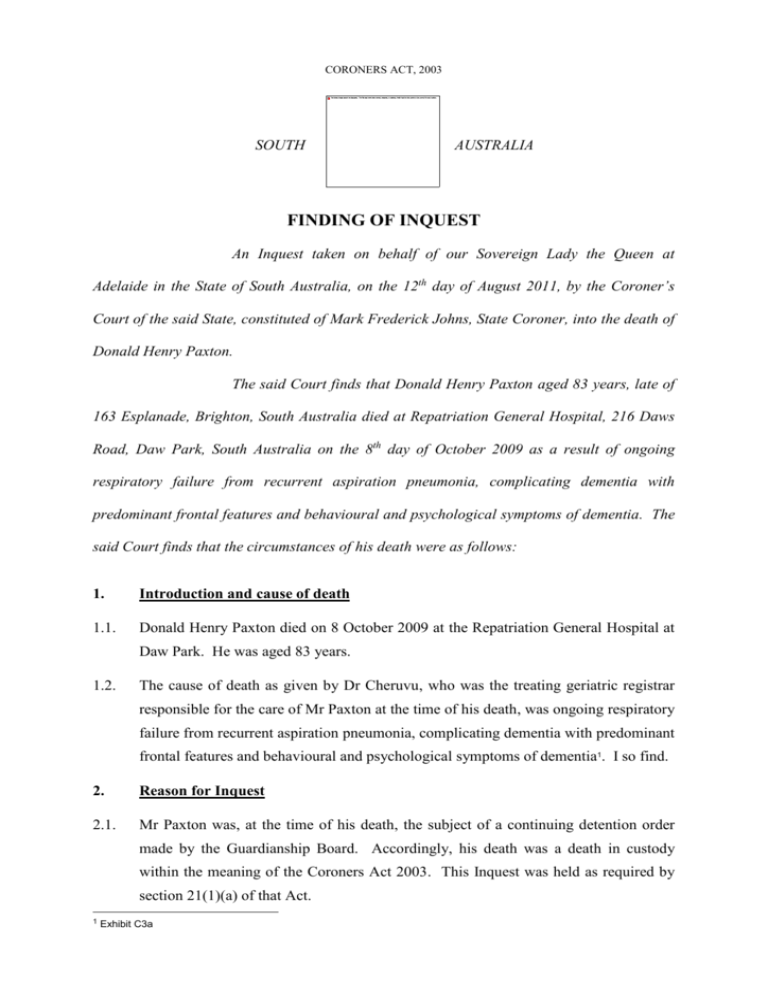
CORONERS ACT, 2003 SOUTH AUSTRALIA FINDING OF INQUEST An Inquest taken on behalf of our Sovereign Lady the Queen at Adelaide in the State of South Australia, on the 12th day of August 2011, by the Coroner’s Court of the said State, constituted of Mark Frederick Johns, State Coroner, into the death of Donald Henry Paxton. The said Court finds that Donald Henry Paxton aged 83 years, late of 163 Esplanade, Brighton, South Australia died at Repatriation General Hospital, 216 Daws Road, Daw Park, South Australia on the 8th day of October 2009 as a result of ongoing respiratory failure from recurrent aspiration pneumonia, complicating dementia with predominant frontal features and behavioural and psychological symptoms of dementia. The said Court finds that the circumstances of his death were as follows: 1. Introduction and cause of death 1.1. Donald Henry Paxton died on 8 October 2009 at the Repatriation General Hospital at Daw Park. He was aged 83 years. 1.2. The cause of death as given by Dr Cheruvu, who was the treating geriatric registrar responsible for the care of Mr Paxton at the time of his death, was ongoing respiratory failure from recurrent aspiration pneumonia, complicating dementia with predominant frontal features and behavioural and psychological symptoms of dementia1. I so find. 2. Reason for Inquest 2.1. Mr Paxton was, at the time of his death, the subject of a continuing detention order made by the Guardianship Board. Accordingly, his death was a death in custody within the meaning of the Coroners Act 2003. This Inquest was held as required by section 21(1)(a) of that Act. 1 Exhibit C3a 2 3. Background and events leading to Mr Paxton’s death 3.1. Mr Paxton had lived a healthy and productive life and, according to his wife, was a kind man and they had a happy life together. 3.2. Unfortunately Mr Paxton developed a gangrenous gallbladder and underwent surgery for that in 2006. According to his wife, from that time his health declined steadily and indeed his general wellbeing and mood started a downward spiral from that time. From the beginning of 2008 Mr Paxton became forgetful and there was a continuing decline until a point of crisis was reached in March 2009 when Mr Paxton unfortunately, and more uncharacteristically, became aggressive towards his wife and expressed suicidal ideation. 3.3. As a result of that crisis he was referred to the Flinders Medical Centre on 11 March 2009 and detained by a Dr Gupta on the grounds of impaired judgment and risk of self harm. 3.4. He was known to have dementia and was thought to have a depressive illness as well. He was transferred to the Repatriation General Hospital for further assessment and management. It became clear that he had a cognitive decline that had been in progress for two years and symptoms consistent with Alzheimer's dementia. 3.5. He was kept in a secure ward and although he was transferred to an open unit shortly thereafter, he was found to be secreting knives from food trolleys and stating that he would use them to stab himself. As a result of this he was transferred back to the secure unit of Ward 18 where he was treated with the antidepressant sertraline with a view to improving his depression. 3.6. Due to his suicidal ideation and his statements to that effect, it was difficult to obtain Aged Care Assessment Team approval for him to be accommodated in an aged care facility. As a result he was to remain at the Repatriation General Hospital for an unusually long time, in fact until his death in October 2009. A continuing detention order from 21 April 2009 to 21 October 2009 was issued by the Guardianship Board. 3.7. Mr Paxton began to have problems with his physical health and had bouts of pneumonia off and on between April 2009 and his death. In particular, he developed a fever on 12 May 2009 and was diagnosed with left lower lobe pneumonia for which he was prescribed intravenous antibiotics. He initially improved but there was a 3 recurrence of the pneumonia secondary to aspiration and that again was managed with antibiotics. 3.8. At that point, after discussion with his son, it was documented on Mr Paxton’s medical notes that he was ‘not for resuscitation’. He was then managed with a palliative approach, however his pneumonia improved. 3.9. He was regularly seen by his psychiatrist on the medical wards. As I have already said, he was treated by geriatricians quite appropriately. 3.10. On 14 September 2009 he was transferred to the secure ward again having developed behavioural issues and aggression and shortly thereafter developed another episode of pneumonia with type two respiratory failure. He was transferred to the Intensive Care Unit and unfortunately was unable to be fed by mouth due to his high risk of aspiration. His decline rapidly accelerated. He experienced ongoing respiratory failure requiring high flow oxygen. 3.11. His son and wife were consulted and requested that he be for comfort care and not for active treatment. He was managed symptomatically from 2 October 2009 on the medical ward. 3.12. Ongoing respiratory failure was managed conservatively and he was kept comfortable until he died on 8 October 2009. 3.13. I find that he was lawfully detained and appropriately so. His medical and psychiatric treatment were of an appropriately high standard. 4. Recommendations 4.1. I have no recommendations to make in this matter. Key Words: Death in Custody In witness whereof the said Coroner has hereunto set and subscribed his hand and Seal the 12th day of August, 2011. State Coroner Inquest Number 28/2011 (1590/2009)

